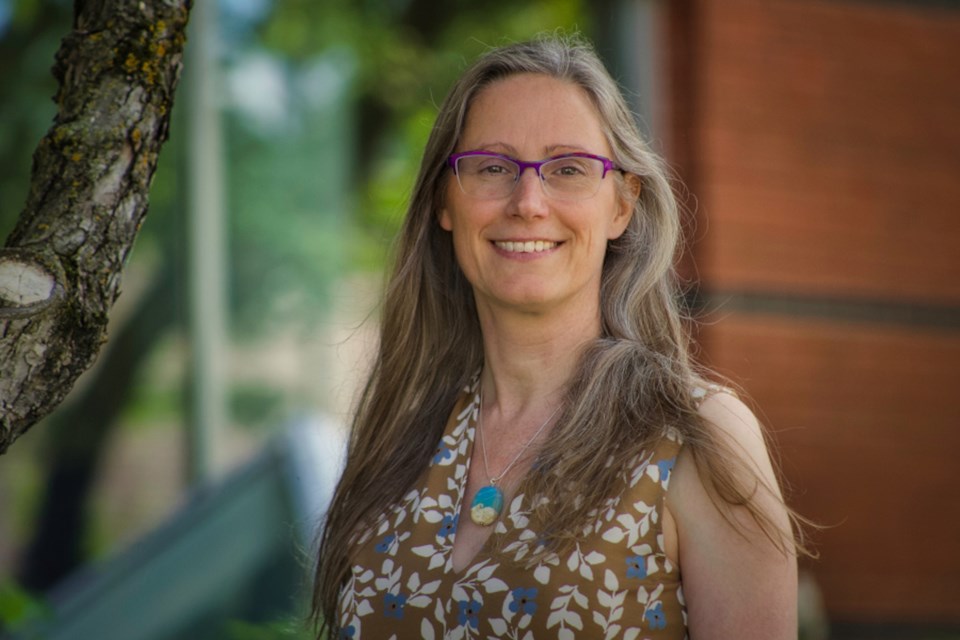NEWS RELEASE
LAKEHEAD UNIVERSITY
*************************
Lakehead University has named Dr. Mirella Stroink as its new dean of the Faculty of Health and Behavioural Sciences. She will begin her new role Aug. 1.
Dr. Stroink is a professor in the Department of Psychology at Lakehead University, where she has served two terms as Chair from 2015 to 2021.
As Chair of Psychology, she facilitated a three-year process of developing a new undergraduate curriculum.
She also identified opportunities for the development of programs unique to the University and positioned the department for an enhanced focus on student success and experiential learning.
She is a passionate educator and mentor, an accomplished researcher, and an innovative, collaborative and systems-minded leader who is committed to Lakehead University and to Thunder Bay and Simcoe County.
Dr. Stroink said she is delighted to become the dean of the Faculty of Health and Behavioural Sciences, especially at such a critical time.
“The pandemic, climate change, and Canada’s growing recognition of the need for reconciliation have made the importance of our disciplines even more visible,” she said.
Dr. Stroink is looking forward to leveraging the faculty’s strengths to demonstrate the value of Lakehead’s programs, and mobilizing research to advance health in Thunder Bay, Simcoe County and in society as a whole.
“The Faculty of Health and Behavioural Sciences at Lakehead University provides world-class professional programs with outstanding opportunities for experiential, inter-professional, and community-based learning.
“We are also explicitly grounded in our solid foundation of behavioural science and the arts and science disciplines of Lakehead University. I am excited to foster a culture of engagement and innovation, and to build environments and networks that enable our faculty, students, and staff to develop and thrive in a dynamic environment,” she said.
Dr. Stroink looks forward to leading the vibrant Faculty of Health and Behavioural Sciences in achieving its strategic plan. In particular, she is eager to realize the Faculty’s aims of diversity, equity, and inclusion, particularly for Indigenous students, faculty and staff, and to support its disciplines in embracing multiple ways of knowing.
“I look forward to bringing out the truly exceptional nature of the Faculty of Health and Behavioural Sciences at Lakehead University,” she said.
Dr. David Barnett, Lakehead University’s Provost and Vice-President (Academic), said he will work with Dr. Stroink to build on and expand the faculty’s strengths.
“Lakehead University is recognized for its high-quality health and behavioural science programs and the faculty’s many contributions to research,” Dr. Barnett said.
“Dr. Stroink is an accomplished scholar and leader. She brings a commitment to people and understands the importance of the faculty in educating the next generation of graduates who can make significant contributions in health-related fields.”
She completed an Honours Bachelor of Arts at Mount Allison University, and a Master’s and Doctorate in Social Psychology at York University.
Prior to joining Lakehead University in 2004, Dr. Stroink held teaching positions at the University of Toronto Scarborough, Trent University, and York University.
At Lakehead University, she received the Contribution to Teaching Award in 2012 and 2014, and was nominated by students for a mentoring award from the Canadian Psychological Association in 2015.
As a researcher, Dr. Stroink and her students apply complex adaptive systems theory to examine how cognitive processes such as meaning-making interact with the social, cultural, and environmental contexts to produce behaviour that impacts the health of people and the planet.
Recent projects include the psychology of systems thinking, the dynamics of meaning-making, the psycho-social dimensions of food systems, and the role of behavioural adaptation in psychological resilience in response to COVID-19.
Dr. Stroink has been involved in several multidisciplinary and community-engaged research partnerships and has held various research grants and contracts.
She worked with the Food Security Research Network from 2005 to expand community service learning in psychology and beyond, and has co-led the multidisciplinary complexity seminar since 2013.
As co-founder of the 180 Institute, Dr. Stroink collaborated to offer the Social Innovation and Leadership for Complex Challenges course for regional community leaders in 2014, and to provide consulting and workshops for several community organizations in the Thunder Bay area.
*************************
